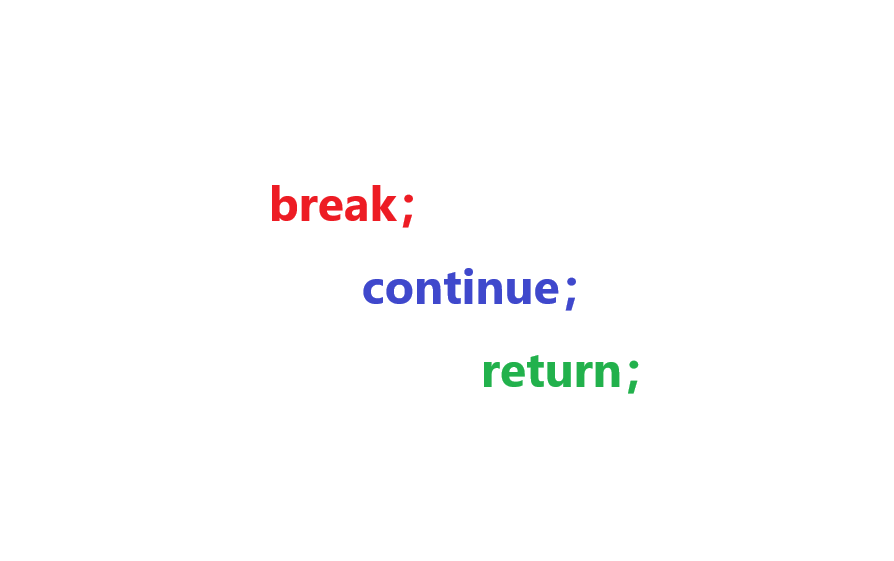
 01Introduction:
01Introduction:
In C language, break, return, and continue are three completely different control statements, with the following specific differences:
02Break
1. Usage Scenarios
Loop statements (<span><span>for/while/do-while</span></span>) and <span><span>switch</span></span> statements.
2. Core Functionality
In loops: Immediately terminate the entire current loop and continue executing the code after the loop. In switch: Exit the<span><span>switch</span></span> structure to avoid the “case fall-through” phenomenon.
3. Example
for(int i=0; i<10; i++){<br/> if(i == 5) break; // When i=5, directly end the entire loop<br/> printf("%d ", i); // Output: 0 1 2 3 4<br/>}03Continue
1. Usage Scenarios
Only applicable to loop statements
2. Core Functionality
Skip the remaining code of the current loop, directly enter the next iteration of the loop
3. Example
for(int i=0; i<5; i++){<br/> if(i == 2) continue; // Skip the current iteration when i=2<br/> printf("%d ", i); // Output: 0 1 3 4<br/>}04Return
1. Usage Scenarios
Inside a function
2. Core Functionality
Terminate function execution: immediately exit the current function
Return value: pass data to the caller (non-void functions must return a value)
3. Example
int sum(int a, int b){<br/> return a + b; // Return the computed result and end the function<br/>}<br/>void check(int x){<br/> if(x < 0) return; // Exit the function without returning a value<br/> printf("Valid");<br/>}03Conclusion
| Statement | Scope | Execution Result | Typical Usage |
|---|---|---|---|
<span>break</span> |
Loop/Switch | Terminate the current structure | End the loop or case branch early |
<span>continue</span> |
Loop | Skip the remaining code of the current loop | Filter specific conditions not to process |
<span>return</span> |
Function | End the function and return (optional) value | Terminate function logic or pass results |
Common Misconceptions:
<span><span>break</span></span>cannot be used to exit a function (can only exit loops/switch)<span><span>continue</span></span>is invalid in<span><span>switch</span></span>(can only be used in loops)<span><span>return</span></span>will terminate the entire function (not just the loop)<span><span>break</span></span>only exits the nearest loop in nested loops
Programming Recommendations:
- In multiple nested loops, if you need to exit all loops directly, it is recommended to combine with
<span><span>goto</span></span>or flag variables <span><span>return</span></span>statements should appear at the end of the function or in conditional checks to avoid unreachable code- Be cautious when using
<span><span>continue</span></span>if the loop body exceeds 20 lines, as it may reduce code readability